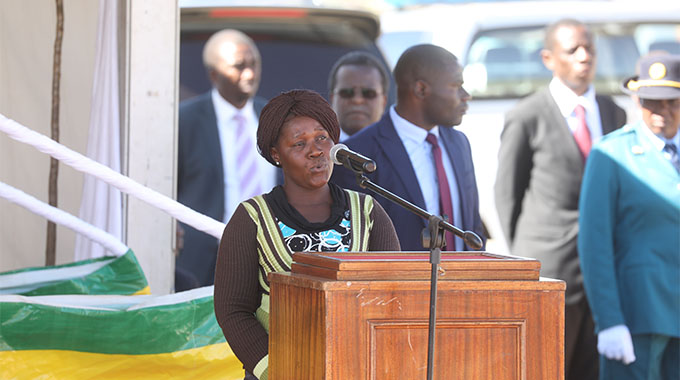
The Sunday Mail

Fatima Bulla
While most men take a back seat in supporting women’s access to sexual health and reproductive services, Mr Perangei Mubhunduyo is a perfect example of the important role men should play.
During the seven years that Ms Tendai Chimana endured living with obstetric fistula, her husband Mr Mubhunduyo offered his full support.
Obstetric fistula is a condition in which urine leaks due to vaginal injuries sustained during labour.
Ms Chimana’s first husband dumped her as he could not stomach living with a wife who had vaginal injuries, was passing urine uncontrollably and facing the possibility of failing to conceive in the future.
The complication developed when she was 18 and she could not afford the $3 500 required for corrective surgery.
Narrating their journey, Mr Mubhunduyo said: “When we met, she said to me, ‘You might love me but I have a problem of passing urine uncontrollably because of a mistake that happened’. Since I had proposed love to her without knowing her condition, I accepted it with the belief that it would end by the grace of God.
“So in those seven years, we endured going to hospitals and there after to traditional healers. We were trying to find a solution but it was in vain,” he said.
At public gatherings, Mr Mubhunduyo would ensure that his wife’s problem remained discreet, reminding her to frequently clean up to avoid the stench associated with urine.
But pressure came from all fronts, with his relatives asking him to reconsider the problem he was getting himself into. On the other end, finances became a challenge as he had to buy at least six bars of soap a month to ensure that his wife stayed clean.
“She phoned me one day while I was away and requested for money to travel to Chinhoyi to seek free medical attention through a United Nations Population Fund sponsored programme. I sent her the money and maintained constant communication.
“After spending a month seeking treatment in Chinhoyi, she told me the problem had been corrected. I could not believe it, I wanted to see it for myself.
“It was true. I said we could now focus on the next problem, which was to conceive, since our biggest problem had been solved. I know that too will be solved,” he said.
According to UNFPA, complications during pregnancy and childbirth are the leading causes of death and disability among women of reproductive age.
In Zimbabwe, it is noted that for every woman who dies due to pregnancy-related causes, another 20 to 50 suffer severe complications such as fistula.
Instead of finding support from their husbands, many are dumped and have to live with the stigma associated with the condition.
As the couple moves on with their life, UNFPA is looking at strides made after 50 years of pushing for quality of life, especially for women and young people through promoting access to Sexual Reproductive Health Rights services.
Further, such strides are also being commemorated this year on the 25th anniversary of commitments made by 179 countries in Egypt at the International Conference on Population and Development Programme of Action.
Reproductive and health rights as well as gender equality are the cornerstones of population and development programmes. UNFPA country representative, Dr Esther Muia acknowledged that more men in Zimbabwe are realis33ing the importance of having a healthy wife and family.
She said they are embracing women’s health issues as their own business.
Though social and cultural practices continue to be a hindrance, she noted the importance of access to information and proximity to heath services, particularly on matters to do with family planning.
“We know rural women who are hiding their pills in the mealie-meal. But can you imagine the danger if a child found the pills in the mealie-meal? So male involvement is important so that men can support their women in taking the contraceptives. Sex is between two people and it has to be an agreement.
“However, the other thing has to do with the availability of choices so that it’s not only take A or B. Now UNFPA is supporting Zimbabwe. We buy all the available types of contraceptives. We have expanded contraceptive choices and women now have more choices,” Dr Muia said.
The Government, through the Women Affairs Ministry, is pushing the gender equality agenda through availing opportunities in various economic sectors.
Incidences and prevalence of gender based violence is also being closely monitored through the Domestic Violence Act, while safe shelters for survivors of GBV have been established.
In his speech on World Population Day, which was commemorated last week, President Mnangagwa reaffirmed Government’s commitment to ensure that women and young people live healthier, productive and violence-free lives.
He said availing essential health services is one of Government’s top priorities.



